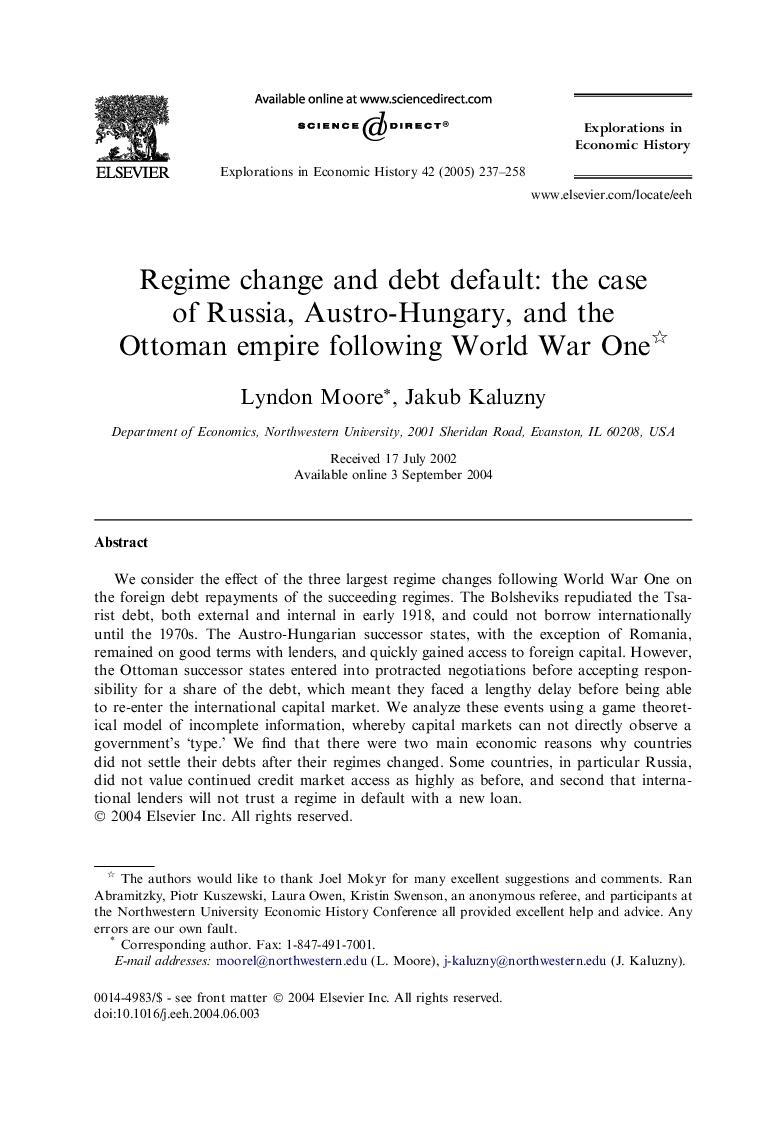| کد مقاله | کد نشریه | سال انتشار | مقاله انگلیسی | نسخه تمام متن |
|---|---|---|---|---|
| 9551365 | 1373053 | 2005 | 22 صفحه PDF | دانلود رایگان |
عنوان انگلیسی مقاله ISI
Regime change and debt default: the case of Russia, Austro-Hungary, and the Ottoman empire following World War One
دانلود مقاله + سفارش ترجمه
دانلود مقاله ISI انگلیسی
رایگان برای ایرانیان
موضوعات مرتبط
علوم انسانی و اجتماعی
علوم انسانی و هنر
تاریخ
پیش نمایش صفحه اول مقاله

چکیده انگلیسی
We consider the effect of the three largest regime changes following World War One on the foreign debt repayments of the succeeding regimes. The Bolsheviks repudiated the Tsarist debt, both external and internal in early 1918, and could not borrow internationally until the 1970s. The Austro-Hungarian successor states, with the exception of Romania, remained on good terms with lenders, and quickly gained access to foreign capital. However, the Ottoman successor states entered into protracted negotiations before accepting responsibility for a share of the debt, which meant they faced a lengthy delay before being able to re-enter the international capital market. We analyze these events using a game theoretical model of incomplete information, whereby capital markets can not directly observe a government's 'type.' We find that there were two main economic reasons why countries did not settle their debts after their regimes changed. Some countries, in particular Russia, did not value continued credit market access as highly as before, and second that international lenders will not trust a regime in default with a new loan.
ناشر
Database: Elsevier - ScienceDirect (ساینس دایرکت)
Journal: Explorations in Economic History - Volume 42, Issue 2, April 2005, Pages 237-258
Journal: Explorations in Economic History - Volume 42, Issue 2, April 2005, Pages 237-258
نویسندگان
Lyndon Moore, Jakub Kaluzny,